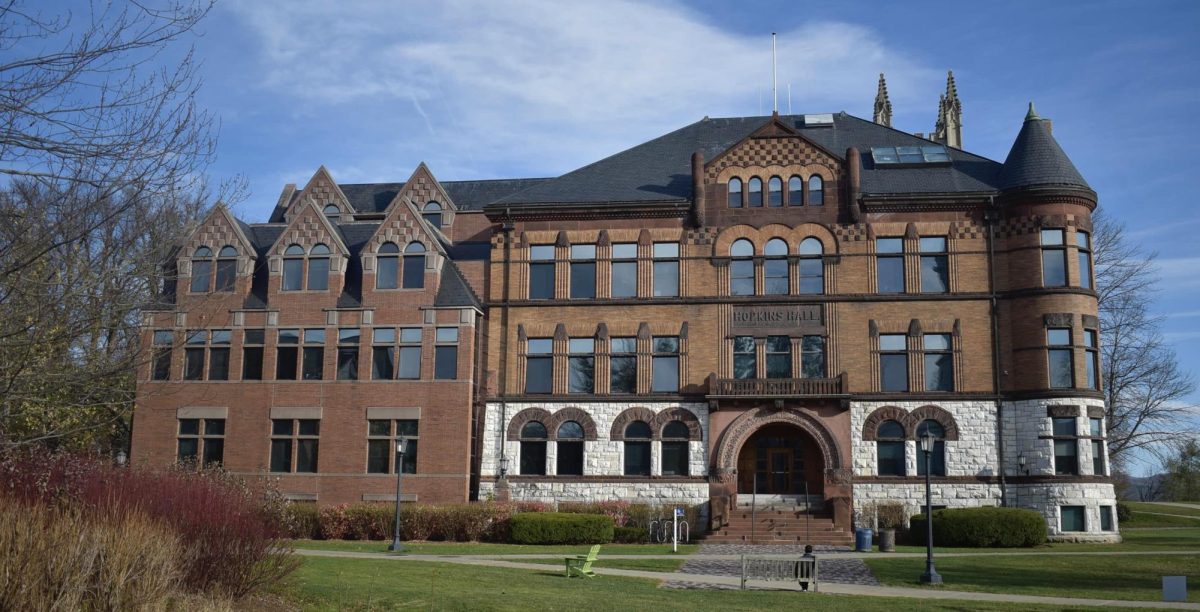A call to reevaluate first-year fall
February 8, 2023
For a majority of students arriving on campus in late August of their first year, the transition to life at the College is difficult, to say the least. Beyond the sweltering heat and frenzy of First Days, adapting to the College’s isolated and rigorous environment is intuitive only to those fortunate enough to have attended an elite boarding school nestled in a rural location. For others, the Williams experience represents a foreign experience socially, academically, and geographically.
The combination of academic rigor and pressure to succeed in first-year fall often forces students to narrow their sights and forgo the work required to establish meaningful relationships. I felt this intensely during my first year. When I arrived wide-eyed on the steps of Sage Hall in the fall of 2019, I was entirely unprepared for what was to come over the next few months. As a low-income student from a high school that had never sent a student to a NESCAC or Ivy League institution, I had no conception of what Williams would entail or the opportunities it could provide me. I knew the College was intense, but I had no way of fully grasping the difference in academic intensity or the challenge of social adaptation in an environment so fundamentally different from the southern, Evangelical culture of my hometown.
During the fall of my first year, I often felt insecure, both socially and academically. Lacking any substantive community, I latched onto the only thing comparable between myself and my peers: a GPA and transcript. These became proxies for my personal value, worthiness, and eventual job prospects. The hope of securing a job warped my internal calculus around what courses were worth taking and how much time I could devote to activities outside of the classroom. It felt irresponsible to explore a course that satisfied an academic interest but hindered my ability to secure a job. Joining my entry for snacks, team for game days, or WOOLF group for a weekend outing did not seem justified given the stakes. Any free time felt like it should be dedicated to studying in a last-ditch effort to diminish an 18-year academic deficit. After all, was taking an interesting course outside of my comfort zone or building a snowman in Frosh Quad worth the risk of jeopardizing my opportunity for socioeconomic mobility?
Students like myself bring their whole selves to campus — their family struggles, their financial status, their race/ethnicity — not just their intellect. Learning is not — and for some, cannot be — the only consideration. For students to take the risks necessary to enrich “mind, body, and spirit,” as the College itself claims to encourage, they need support from peers and the ability to explore their interests without immense academic, social, and financial consequences. Particularly for students from non-elite and non-traditional backgrounds, only engaging in activities related to academics isolates and underprepares students for life after Williams.
The struggle of the first year is no secret to the College. The College attempts to address the inherent difficulty of this experience through an extensive First Days program and expansive entry system. But both First Days and entries act more as treatment than cure for the pressures induced by life at the College. While providing resources and attempting to cultivate inorganic communities is a noble start, both are insufficient for treating the root cause: overwhelming academic stress at the expense of holistic self-cultivation. The College must broaden its horizons and consider curricular solutions that enable students to invest the requisite time and energy into establishing themselves on-campus. One such solution is universal Pass/Fail in the fall of students’ first year.
Self-cultivation requires risk-taking, and risk-taking requires security. Security is ultimately produced through building strong relationships and becoming acquainted with discomfort and growth. Once these elements are established, individuals then feel secure enough to take the risks necessary to become the well-rounded individuals the College hopes to forge. Crucially, a student’s first year often determines their trajectory for achieving personal security and thus their capacity for social, emotional, physical, and intellectual growth.
Yet establishing a firm foundation is no easy task, especially during the transition to college life. In college, there is no one to tell you to study, make time for relationships with your peers, or take care of yourself — mentally and physically. Many first-years also lack innate knowledge of how to holistically take care of themselves or form supportive communities. Accordingly, first-year fall represents a vital time in which students must learn to create for themselves, often for the first time, healthy relationships with themselves and others.
While no panacea for these problems, implementing universal Pass/Fail for first-year fall is a more holistic approach to ensuring a smoother adjustment to life at Williams than what the College currently provides. A Pass/Fail policy for first-year fall would take pressure off students to only focus on courses they know they can do well in — enabling them to take chances, explore academic interests, and spend time establishing strong support networks. Once established, these foundations form the bedrock upon which students may construct the holistic self promised, but not always realized, by a Williams education.
Samuel Riley ’23 is a political economy major from Lakeland, Fla.







